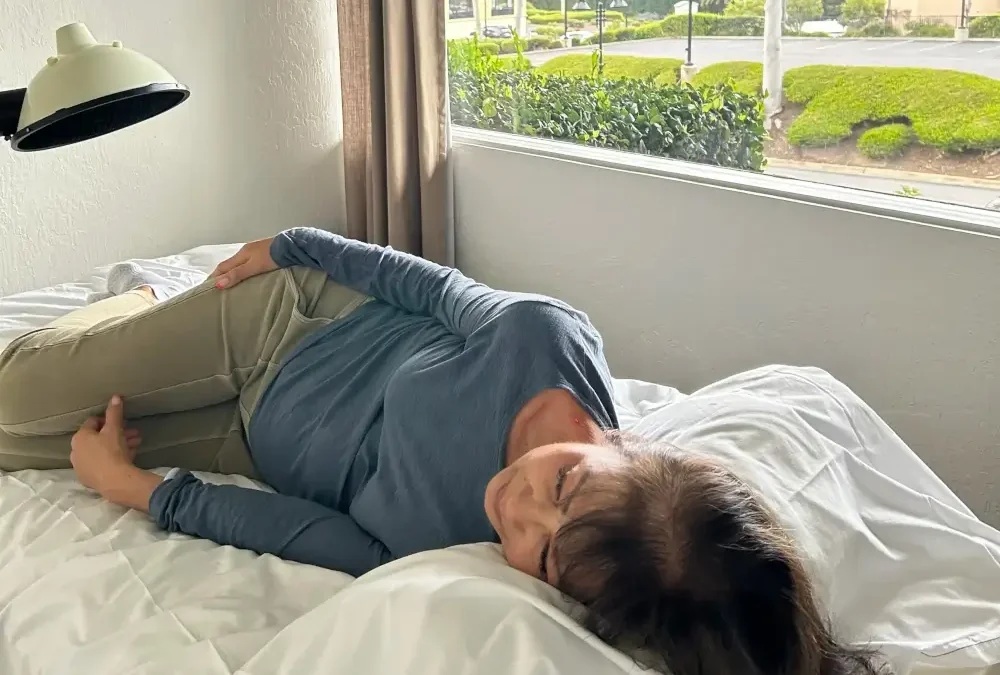In a world filled with stressors and distractions, achieving a good night’s sleep can often feel like an elusive dream. From endless to-do lists to the constant bombardment of digital screens, many struggle with insomnia and other sleep-related issues. While there are numerous remedies available, ranging from medication to lifestyle changes, one ancient practice has stood the test of time as a potential solution: acupuncture.
Acupuncture is a key component of Traditional Chinese Medicine (TCM), dating back thousands of years. It involves the insertion of thin needles into specific points on the body, aiming to restore the flow of energy, or Qi, along pathways known as meridians. While initially met with skepticism in the West, acupuncture has gained recognition and acceptance as a complementary therapy for a variety of conditions, including sleep disorders.
Understanding the Connection: Acupuncture and Sleep
The principles of acupuncture revolve around the concept of balance and harmony within the body. According to TCM theory, disruptions in the flow of energy can lead to various health problems, including sleep disturbances. Acupuncture seeks to address these imbalances by stimulating specific points on the body, promoting relaxation, and restoring equilibrium.
Several studies have explored the potential benefits of acupuncture for improving sleep quality and treating insomnia. One theory suggests that acupuncture may influence the release of neurotransmitters such as serotonin and endorphins, which play crucial roles in regulating sleep-wake cycles and promoting relaxation. Additionally, acupuncture may help reduce levels of stress hormones like cortisol, which can interfere with sleep.
The Acupuncture Session: What to Expect
During an acupuncture session focused on sleep improvement, a licensed practitioner will conduct a thorough assessment of the individual’s overall health and sleep patterns. Based on this evaluation, the practitioner will determine the appropriate acupuncture points to target.
The acupuncture needles used are extremely thin, typically causing minimal discomfort or pain. Once inserted, the needles may be gently manipulated to enhance their therapeutic effects. Depending on the individual’s specific needs, other techniques such as cupping or acupressure may also be incorporated into the treatment session.
Most acupuncture sessions last between 30 to 60 minutes, with many individuals reporting a deep sense of relaxation during and after the treatment. While some people experience immediate improvements in sleep quality, others may require multiple sessions to achieve optimal results.
Research Evidence and Clinical Studies
Numerous studies have investigated the efficacy of acupuncture for sleep disorders, yielding promising findings. A meta-analysis published in the Journal of Alternative and Complementary Medicine examined 46 randomized controlled trials involving over 3,800 participants with insomnia. The analysis concluded that acupuncture was associated with significant improvements in sleep quality and duration compared to placebo or no treatment.
Another study published in the Journal of Sleep Research explored the effects of acupuncture on individuals with insomnia related to menopause. The researchers found that acupuncture not only improved sleep quality but also reduced the severity of menopausal symptoms such as hot flashes and night sweats.
Integrating Acupuncture into a Holistic Sleep Strategy
While acupuncture can be an effective standalone treatment for sleep issues, it is often most beneficial when combined with other holistic approaches. Lifestyle modifications such as maintaining a regular sleep schedule, creating a relaxing bedtime routine, and minimizing exposure to electronic devices before bed can complement the effects of acupuncture.
Additionally, practices like meditation, yoga, and tai chi can further promote relaxation and stress reduction, enhancing the overall effectiveness of acupuncture treatments. Dietary adjustments, herbal supplements, and mindfulness techniques may also play a role in supporting healthy sleep patterns.
Conclusion: Restoring Balance for Better Sleep
In a world where sleep deprivation has become increasingly prevalent, exploring alternative therapies like acupuncture offers a beacon of hope for those seeking restful slumber. By harnessing the ancient wisdom of Traditional Chinese Medicine, acupuncture provides a gentle yet powerful tool for restoring balance to the body and mind.
While more research is needed to fully understand the mechanisms underlying acupuncture’s effects on sleep, the growing body of evidence suggests that it holds significant promise as a safe and natural approach to improving sleep quality and overall well-being. Whether used as a standalone therapy or as part of a holistic sleep strategy, acupuncture offers a pathway to reclaiming the rest and rejuvenation needed to thrive in today’s fast-paced world.
A licensed acupuncturist at As Designed Wellness can help if you’re thinking about getting acupuncture and are having trouble sleeping or with any other associated problem. We are located in Dana Point, close to Laguna Beach and Mission Viejo. It is preferable to use this form or give (949) 412-6815 a call to schedule a consultation ahead of time.

